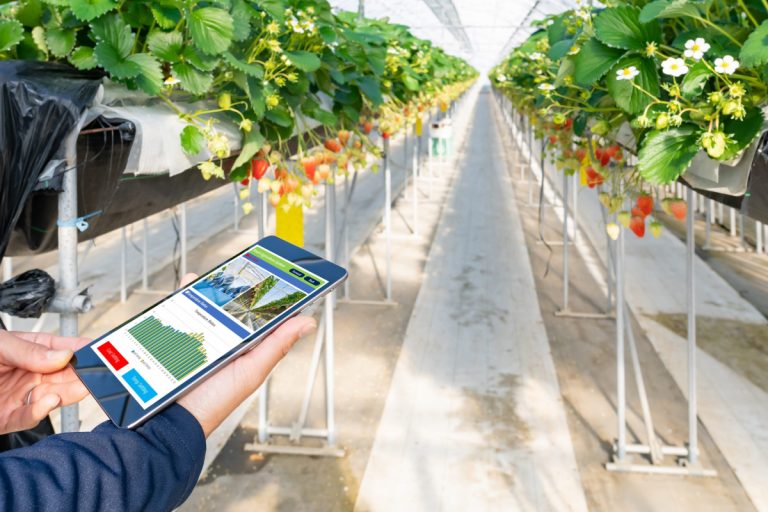- Automation has become essential to the food industry, helping businesses save time and reduce costs.
- Businesses can use automation to streamline processes, improve efficiency and productivity and enhance quality control.
- Robotic kitchen assistants can help streamline back-of-house operations.
- Automated customer services solutions like self-ordering kiosks and AI-powered chatbots can improve customer experiences.
Automation has become an integral part of the food industry. From restaurant kitchens to large-scale commercial production, automation is used to improve efficiency, reduce costs, and promptly produce high-quality products. But what exactly is automation, and why is it so crucial for the food industry? Here’s a brief look at how automation can help businesses succeed in today’s competitive market.
Improved Efficiency and Productivity
Automation technology can help streamline processes across all areas of the food industry. Businesses can save time and money while reducing errors by automating tasks such as ordering ingredients and supplies, tracking inventory levels, processing payments, and scheduling production runs. With automated systems, employees can focus on more critical tasks such as customer service or product innovation.
Enhanced Quality Control
Automation also helps ensure quality control by ensuring that products produced meet stringent standards set by the company. Automated systems allow businesses to track each step of the production process and ensure any potential problems are addressed quickly. This helps ensure that customers receive top-notch products every time they buy from a business.
In addition to improving quality control, automation also helps reduce waste since machines can detect when something is wrong before it becomes a significant issue. This means less product waste due to mislabeling or incorrect measurements—saving businesses time and money.
Improved Customer Service

When customers know their orders will be processed quickly and accurately with minimal effort (thanks to automated systems), they’re more likely to return for future purchases.
Automation also makes it easier for companies to keep up with customer feedback since automated systems allow them to monitor customer satisfaction levels quickly and easily—making it easier to address any issues that arise promptly.
Integrating Automation
As the demand for cost-effective, convenient, and high-quality food products grows, businesses across the sector recognize the numerous benefits of integrating automation into their operations. Here are the various ways the food industry can implement automation technologies:
Automated Food Preparation and Processing
One of the most significant ways automation is utilized in the food industry is through automated food preparation and processing systems. This can include everything from robotic machinery for ingredient mixing and a portion to high-speed slicing and packaging equipment.
On the other hand, using tabletop piston-filling machines in the food manufacturing sector allows businesses to precisely control the amount of product being filled, improving accuracy and reducing waste. This only shows how automation can be helpful in almost any area of the food industry.
Robotic Kitchen Assistants
While it may seem like science fiction, robotic kitchen assistants are quickly becoming a reality for many food service establishments. These cutting-edge technologies can be programmed to perform various kitchen tasks, from chopping vegetables to flipping burgers or cooking a dish from scratch.
By introducing robotic kitchen assistants into the back-of-house operations, restaurants can reduce the reliance on manual labor, increase consistency in food preparation, and create a more efficient working environment for staff.
AI-Powered Inventory Management
Effective inventory management is crucial for any food business, and automation can play a significant role in streamlining this area. Many companies are now turning to AI-powered inventory management systems, which can automatically track inventory levels, identify patterns in food consumption, and make data-driven predictions about future demand. These systems can save businesses significant time and money by minimizing waste and preventing stock-outs or over-ordering.
Automated Customer Service and Ordering

Many food service establishments are also embracing automation in their customer-facing interactions. From self-ordering kiosks and mobile apps to AI-powered chatbots, businesses can quickly process orders, collect customer data, and reduce wait times for their patrons.
Additionally, with more customers seeking contactless and digital-first experiences, implementing these automated customer service solutions will likely become an expectation rather than a novelty.
The Bottom Line
Automation is important in the food industry, helping companies stay competitive in an increasingly crowded marketplace. Automated systems can help streamline processes across all areas of production while ensuring quality control measures are met—allowing companies to provide customers with top-notch products every single time they purchase from them.
With improved efficiency and productivity alongside enhanced customer service capabilities due to automation technology, there’s no doubt that this technology will continue playing an important role in helping businesses succeed for years to come!

